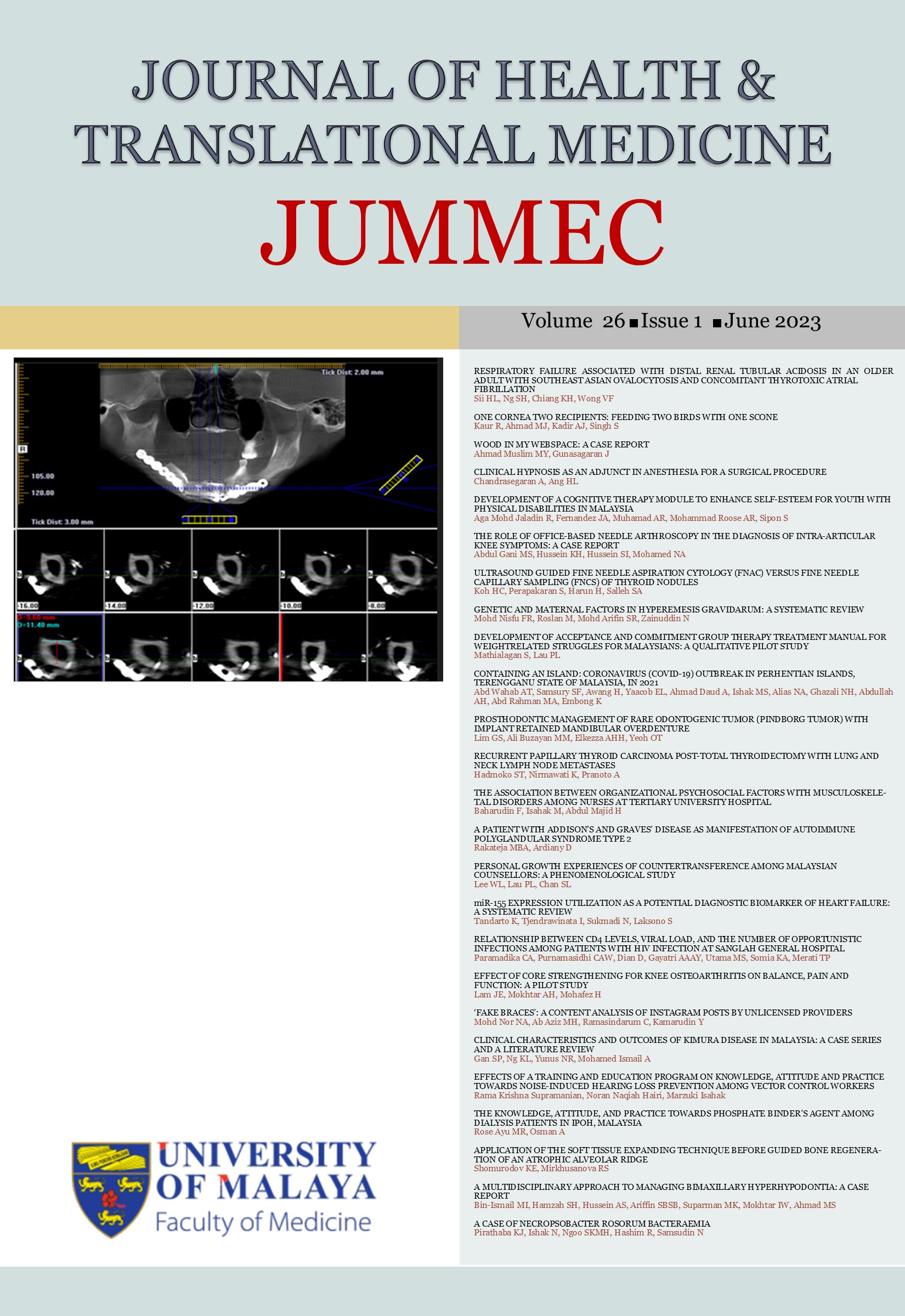THE ASSOCIATION BETWEEN ORGANIZATIONAL PSYCHOSOCIAL FACTORS WITH MUSCULOSKELETAL DISORDERS AMONG NURSES AT TERTIARY UNIVERSITY HOSPITAL
Received 2022-06-15; Accepted 2022-07-15; Published 2023-03-08
DOI:
https://doi.org/10.22452/jummec.vol26no1.13Keywords:
Musculoskeletal Disorders, Psychosocial Factors, Nurses, University HospitalAbstract
Introduction: Musculoskeletal disorders (MSDs) was found to be high among nurses especially those working in the hospital. One of the risk factors of MSDs is psychosocial factors apart from physical and ergonomic factors. However, limited study was found specifically looking at this association among nurses working at tertiary university hospital especially in Malaysia. Hence, the objective of this study is to assess the association between organizational psychosocial risk factors with MSDs among nurses working at tertiary university hospital.
Methods: A cross-sectional study was conducted with a total of 550 respondents among nurses in University Malaya Medical Centre working from all nursing working department. Samples was selected using Stratified Random Sampling based on nursing working location ratio. A multiple logistic regression was conducted to determine the association between organizational psychosocial factors with MSDs among study population.
Results: Multiple logistic regression revealed that supervisors support was associated with MSDs (AOR 0.309, 95%CI 0.133-0.716) even after controlled with confounders such as age, number of children, income, history of musculoskeletal disease, employment grade, total employment duration, work schedule type and selected ergonomic factors. On the other hand, other psychosocial factors which includes decision latitude, psychological job demand, co-worker support, and job insecurity were found not be significant.
Conclusion: The findings highlighted the relationships between organizational psychosocial factors and MSDs among nurses at tertiary university hospital specifically the role of supervisor support as a protective factor against MSDs among this working population. Hence, hospital top management should incorporate this element as one of the components in their program to reduce MSDs among nurses in the hospital.
Downloads
Downloads
Published
Issue
Section
License
All authors agree that the article, if editorially accepted for publication, shall be licensed under the Creative Commons Attribution License 4.0 to allow others to freely access, copy and use research provided the author is correctly attributed, unless otherwise stated. All articles are available online without charge or other barriers to access. However, anyone wishing to reproduce large quantities of an article (250+) should inform the publisher. Any opinion expressed in the articles are those of the authors and do not reflect that of the University of Malaya, 50603 Kuala Lumpur, Malaysia.


